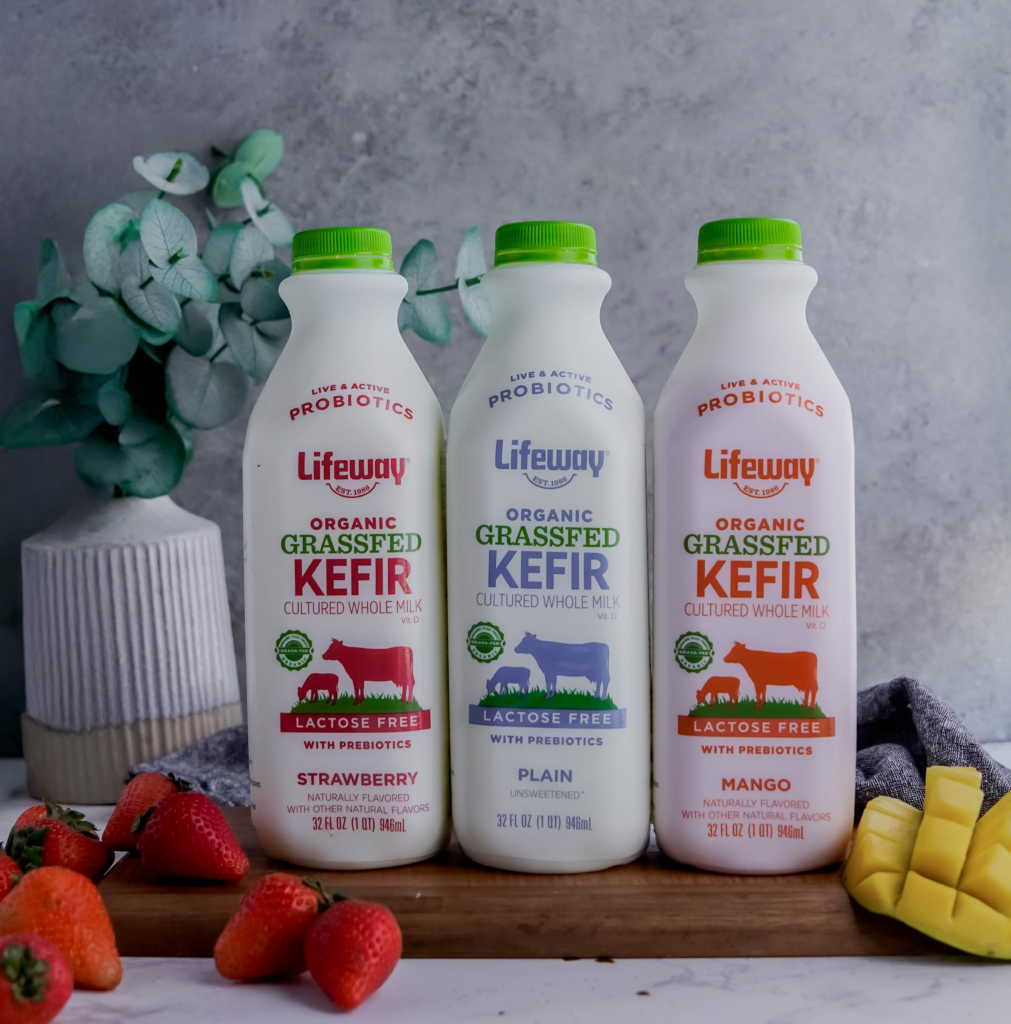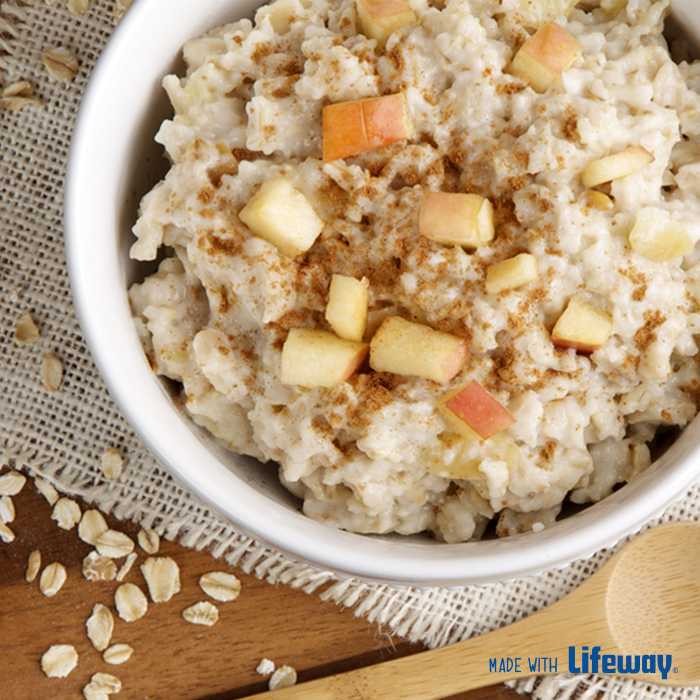It seems like everywhere you look these days you see advertisements and messages encouraging you to eat more fiber. And why not? Fiber serves many important purposes in the body and is crucial for overall health.
You’re probably familiar with its ability to help keep you regular and improve digestion, but adequate fiber intake may even reduce your chances of developing Type 2 diabetes and heart disease, two of the most prevalent types of disease in our current culture. According to the Mayo Clinic, a high-fiber diet (roughly 38 grams per day for men and 25 grams per day for women) can help you obtain these benefits. That’s powerful!
That’s why here at Lifeway, we’re on a mission to help you reach your health goals, especially with gut health, including your fiber intake. Our Organic Grassfed Whole Milk Kefir is full of probiotics (good bacteria) for gut health, and it’s a source of natural prebiotic fiber too!

We use one of the most gentle types of fiber for the gut that naturally acts as a prebiotic, which means it acts as fuel (or “food”) for the probiotic cultures in our kefir. The result? You get a natural, organic synbiotic food that works as an all-in-one superfood for optimal gut health. Our Organic Grassfed Kefir container 3 grams of organic soluble fiber in the form of inulin. It’s gentle on the body and works beautifully with the probiotics in our organic kefir to give you the best of both worlds. We like to think it’s a microbiome masterpiece!
More Fiber Facts: Why It’s Important and How to Get Enough
Maintain Bowel Health and Regularity: To put it gently, insoluble fiber (the kind that doesn’t dissolve in water and bulks up in your intestine, like cauliflower and broccoli, the skin of potatoes and other vegetables, leafy greens, whole wheat, bran cereals, and most nuts) helps keep things moving smoothly and the right size and shape. This helps prevent constipation, diarrhea, hemorrhoids, and other colon diseases—things we all want to avoid! You might have heard of fiber as being a natural “broom” for the body, and this generally refers to insoluble fiber types because they move more swiftly through the body.
Lower Cholesterol Levels: Soluble fiber (the kind that dissolves into a gel-like substance and is found in foods like oatmeal, pears, citrus fruits, and psyllium husk) has been shown in some studies to lower levels of LDL, or “bad” cholesterol. Ever seen the “heart health” seal on your favorite canister of oatmeal? This is why!
Control Blood Sugar Levels: Many studies mostly show that individuals with Type 2 diabetes may better manage their symptoms and control their disease by consuming adequate soluble fiber. Soluble fiber helps slow the absorption of sugar into your blood and helps prevent surges and crashes because it passes more slowly through our intestines.
Reduce Blood Pressure and Inflammation: Studies are still ongoing about this, but some research shows that consuming high-fiber foods may help reduce blood pressure, fight hypertension, and fight inflammation.
Support Weight Loss/ Healthy Weight Maintenance: Because fiber is bulky, it fills you up faster and helps keep you fuller longer, thus avoiding overeating and snacking. They also typically take longer to eat (hello, chewing!), meaning you don’t rush and eat your meal in minutes and then go back for seconds.
They’re Powerfully Prebiotic: Some soluble fibers are considered a prebiotic and can be found in foods such as oats, onions, garlic, bananas, chicory root, Jerusalem artichokes, and asparagus. Some foods may contain prebiotic fiber as an additive in the form of galactooligosaccharides, fructooligosaccharides, oligofructose, chicory fiber, or inulin. Prebiotics are a food source for probiotics, or what they feed off of to remain actively working in your digestive system. Probiotics, like those found in our kefir, may help promote healthy digestion and support proper immune function. You’ll find both probiotics and prebiotic fiber in our Organic Grassfed Whole Milk Kefir products.
Get Your Fiber Fix
Fiber is found naturally and abundantly in fresh fruits and vegetables, as well as in whole grains, beans, lentils, peas, seeds, and nuts. From apples to peanuts, celery to whole grains, fiber can be found in small quantities in almost anything. Unfortunately, for as easy as it is to get, the vast majority of Americans don’t consume half of the fiber recommended on a daily basis. Try Lifeway Grassfed Organic Kefir as a natural way to get 3 grams of the recommended intake of fiber each day and you’re on your way to getting enough.

Need some delicious recipes? Try our recipes for Apple Cinnamon Oatmeal, Berry Kefir Porridge, Plum Overnight Oats or Seamus Mullen’s Power Granola. For a treat, grab one of these Oatmeal Raisin Cookies (ok, two at the most).
Want to learn more about prebiotics and probiotics? Check out our post here so you can stay in the know!
There are tons of healthy, delicious and EASY ways to get your recommended fiber in. Tell us how you fill up on fiber by visiting us on Facebook, TikTok, or Instagram.